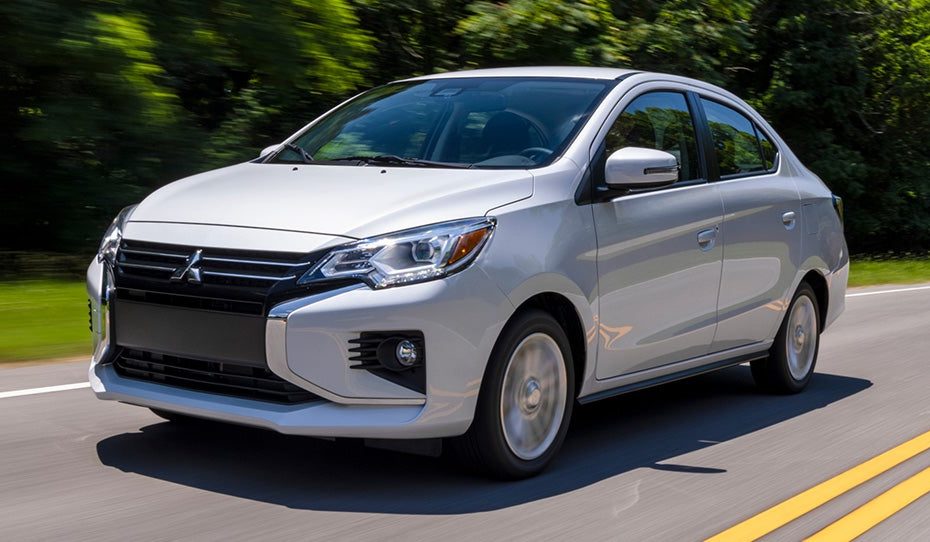When it comes to sedans, most buyers focus on performance, design, and fuel economy. However, one crucial yet often overlooked factor is cabin noise.
A car’s interior sound level can dramatically affect comfort, especially during long drives or daily commutes. A well-insulated cabin can transform the driving experience into a calm and relaxing journey, allowing for easier conversations, more enjoyable music, and less fatigue.
On the other hand, a noisy cabin—whether from engine vibrations, road feedback, or poor sealing—can make even a short trip feel tiring and chaotic.
This comparison of 5 sedans with the quietest cabins and 5 with the loudest is designed to help buyers make more informed decisions.
Whether you’re an executive looking for silence during business calls or a parent wanting a peaceful ride with kids asleep in the back, understanding how cabin acoustics vary between models is essential.
We’ll look at vehicles across different price points, from luxury sedans to affordable daily drivers, based on real-world testing, expert reviews, and decibel readings. By the end, you’ll know which sedans whisper serenity—and which roar like a subway train.
Let’s start with the five sedans that truly stand out for their whisper-quiet cabins.
Also Read: 5 Sedans With Best Leg Extension Seats and 5 With Flat Cushions
Table of Contents
Toggle5 Sedans With Quietest Cabins
Silence isn’t just golden—it’s luxurious. In the automotive world, cabin quietness is often a subtle yet powerful indicator of a vehicle’s overall refinement.
Sedans, traditionally viewed as practical and comfortable, are expected to offer a peaceful driving environment.
However, not all sedans succeed equally in this department. The five models highlighted here go beyond expectations, delivering hushed interiors that rival recording studios—even when traveling at highway speeds.
A quiet cabin comes from a mix of excellent soundproofing materials, advanced suspension systems, refined engine tuning, and aerodynamic design that minimizes wind resistance and road noise.
Luxury automakers like Lexus and Mercedes-Benz have historically prioritized this element, but even some non-premium brands have made big strides using laminated glass, active noise cancellation, and superior chassis insulation.
This list draws on independent decibel testing, owner reviews, and road test feedback to ensure real-world performance is reflected—not just manufacturer claims.
Vehicles included range from executive-class leaders to surprisingly refined mid-size sedans that deliver premium quiet without premium pricing.
Whether you’re someone who spends hours on the road each day, or simply values a tranquil atmosphere while driving, these five sedans consistently score top marks for their interior serenity.
They create a bubble of calm in an otherwise noisy world—a rare trait that dramatically improves driving quality over time.
Let’s take a closer look at five sedans that exemplify this level of acoustic excellence.
1. Lexus ES
The Lexus ES has long been a benchmark in the midsize luxury sedan segment for its serene driving experience. It’s not just about soft leather, wood trim, or a silky V6 engine—it’s about how Lexus isolates its occupants from the outside world with near-surgical precision.
In cabin noise tests conducted by multiple automotive publications, the ES consistently scores among the quietest, with interior sound levels registering as low as 58 decibels at 70 mph—quieter than many luxury competitors.
That silence comes from several smart engineering choices. First, the ES uses acoustic glass for the front and side windows, effectively blocking wind and traffic noise.
The underbody is insulated with sound-deadening panels, while the wheel wells are lined with special foam that dampens road feedback.
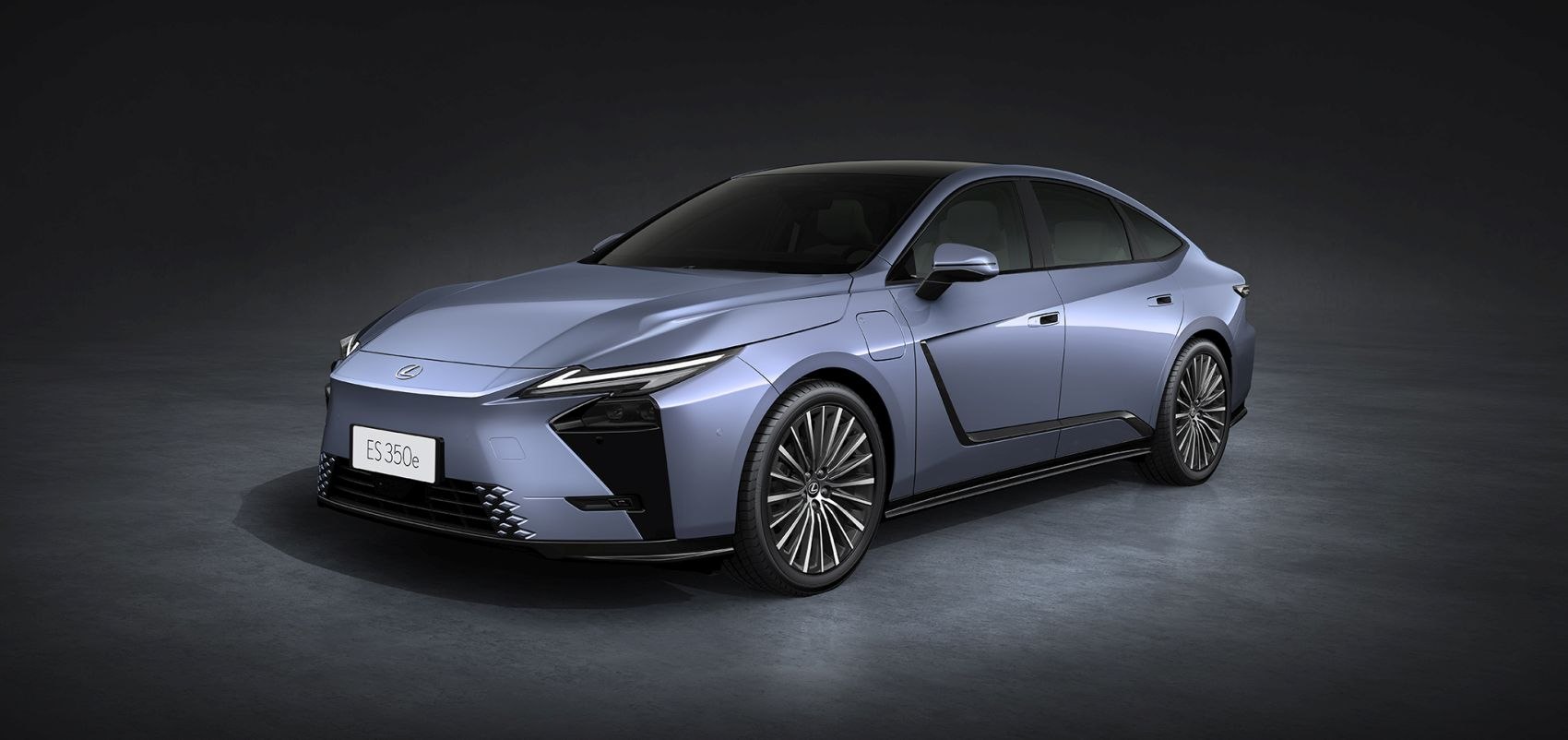
One of the unsung heroes is the engine mount system, which is tuned to absorb vibrations even when the ES is idling.
Whether you choose the V6-powered ES 350 or the hybrid ES 300h, both offer powertrains designed with minimal NVH (noise, vibration, and harshness) intrusion. Even hard acceleration results in a gentle hum rather than a harsh roar.
Inside, Lexus adds to the silence with noise-canceling materials in the doors, dashboard, and floor. The seats are plush and ergonomically supportive, adding to the relaxed atmosphere.
For audiophiles, the optional Mark Levinson sound system is so crisp and undisturbed by background noise that you can distinguish individual instruments at normal volume.
What makes the ES stand out is its ability to deliver luxury-level silence at a relatively attainable price.
While German rivals might edge it out in cornering or tech, the Lexus owns the acoustic battle. This car isn’t just quiet for the class—it’s quiet by any standard.
For buyers who value peace above all else, the Lexus ES is less a car and more a sanctuary on wheels. It’s proof that refinement isn’t always loud and showy—it can be quiet and deeply satisfying.
2. Mercedes-Benz S-Class
If any sedan deserves the title “world’s quietest,” the Mercedes-Benz S-Class makes a compelling case.
This flagship model doesn’t just whisper—it practically eradicates sound from the driving experience, creating a mobile cocoon of luxury that separates passengers from the chaos outside.
Mercedes engineers treat cabin silence as a form of luxury, and the S-Class is their finest expression of that philosophy.
At cruising speed, the S-Class registers among the lowest cabin decibel levels ever recorded in a production car—hovering around 56 decibels at 70 mph. That’s whisper-quiet territory.
This is achieved through triple-sealed doors, double-glazed windows, and a multi-layered firewall between the engine bay and cabin. Extensive use of insulating foam in the pillars and floor ensures wind, tire, and road noise are all muffled to near silence.
Adding to this, the S-Class features active noise cancellation through its Burmester 4D sound system.
This system doesn’t just play music—it emits counterfrequencies that neutralize ambient sounds, especially low-frequency rumbles. The result? It feels like you’re riding in a luxury elevator gliding through air.
Mercedes also integrates what it calls E-Active Body Control, a high-tech suspension that reads the road ahead and adjusts each wheel individually to absorb imperfections. This keeps vibration and harshness from reaching the cabin, further contributing to the silent ride.
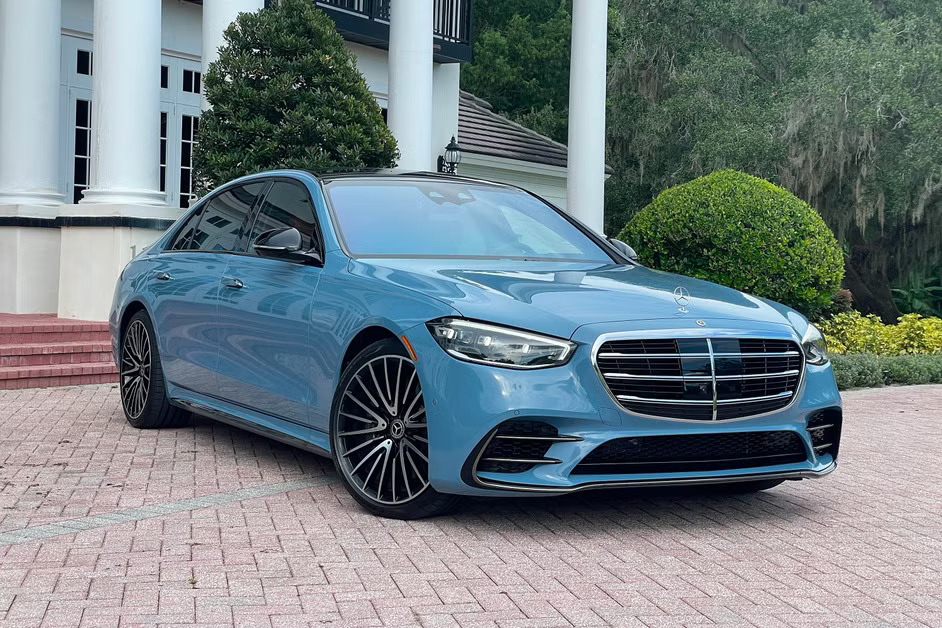
Inside, nearly every surface is wrapped in leather, suede, or soft-touch materials, all of which absorb sound. Even the HVAC system is engineered to operate quietly, with air diffused gently through hidden vents.
The S-Class isn’t just a quiet car—it’s a quiet experience. Whether you’re driving or being chauffeured, the world outside becomes a distant, irrelevant background. This makes it ideal for executives, luxury buyers, and anyone who equates silence with serenity.
In a market full of impressive contenders, the S-Class sets the standard that others chase. If you want to experience what near-total interior silence feels like—without compromising power, comfort, or technology—this Mercedes remains the ultimate benchmark.
3. Genesis G80
The Genesis G80 has steadily risen to prominence as a luxury sedan that challenges the status quo, and one of its most impressive—and often underappreciated—features is its remarkably quiet cabin.
Designed to compete with heavyweights like the BMW 5 Series and Audi A6, the G80 often outshines them when it comes to in-cabin serenity, delivering refinement at a price point that undercuts many European rivals.
The G80’s silence begins with high-density sound insulation placed throughout the chassis and underbody.
Acoustic laminated glass is used on both the windshield and side windows, and an active noise control system is standard in most trims.
This technology uses microphones and a digital processor to emit counterwaves through the audio system, neutralizing intrusive sounds before they reach the passengers.
In real-world testing, the G80 registers between 58–60 decibels at highway speeds—on par with more expensive flagship sedans. The engineers at Genesis paid particular attention to road and wind noise.
The car’s aerodynamics were designed to reduce wind buffeting around the mirrors and A-pillars, while wheel wells are lined with foam-backed shields that limit tire roar.
The cabin itself is a masterclass in elegant materials and noise-absorption. The use of soft leather, brushed metals, and real wood doesn’t just look premium—it also helps dampen reverberations and unwanted vibrations.
Even the HVAC system in the G80 is engineered to distribute air quietly, offering gentle airflow without that common whooshing sound that breaks the spell of silence.
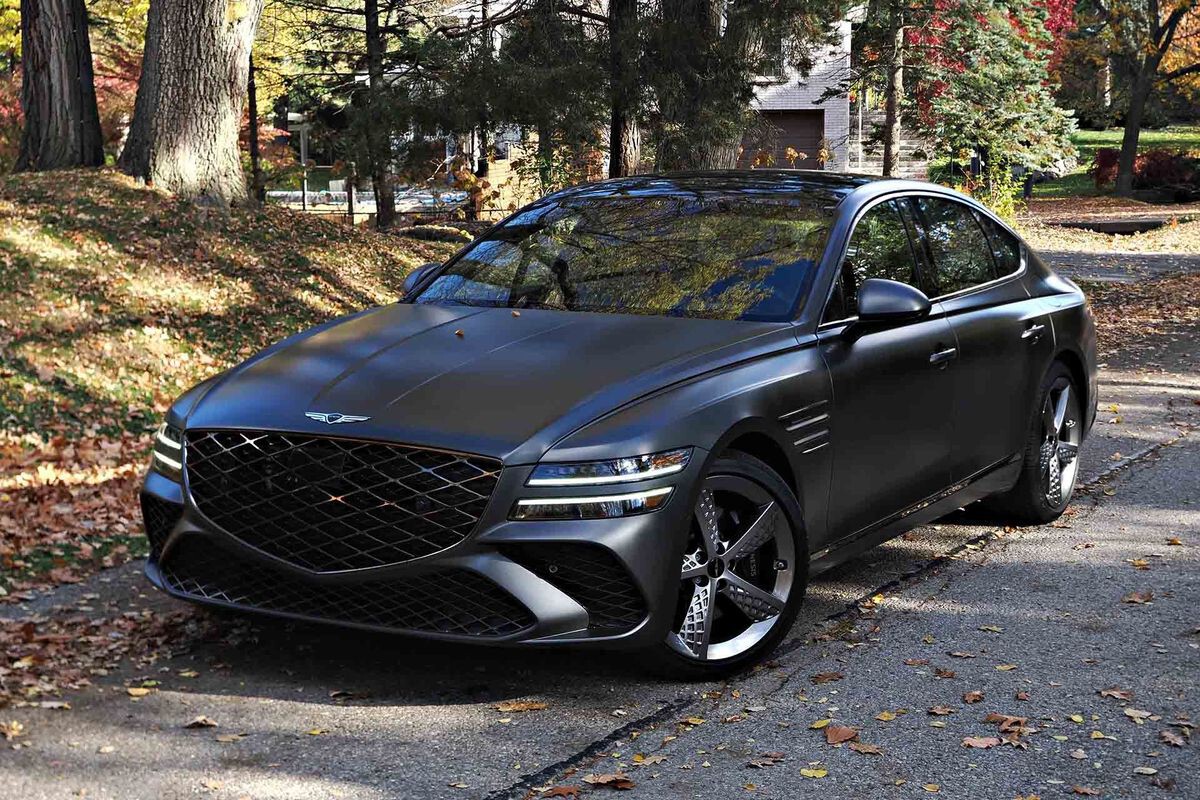
What sets the Genesis G80 apart is its ability to offer this level of quiet and comfort at a price significantly lower than German luxury sedans. It’s a perfect choice for buyers who want premium calm without the prestige markup.
Whether cruising on the highway or crawling through city traffic, the G80 keeps the cabin insulated from the outside world, letting passengers focus on conversation, music, or simply the pleasure of a peaceful drive.
In short, the G80 proves that true luxury isn’t just about logos or lap times—it’s about creating a calm, refined experience every time you start the engine.
4. Toyota Camry Hybrid
The Toyota Camry Hybrid might not scream luxury, but it does whisper refinement—especially when it comes to interior noise.
In recent years, Toyota has invested heavily in improving not just the performance and tech of the Camry, but also its cabin insulation, and nowhere is that more apparent than in the hybrid variant.
This version is often quieter than its gasoline-only siblings, making it a standout in the world of affordable sedans.
The Camry Hybrid excels in noise suppression for a few key reasons. First, the hybrid powertrain itself is inherently quieter. At low speeds, the Camry Hybrid runs on electric power alone, which means the engine is completely off.
Even when the gas engine kicks in, it does so smoothly and without much audible intrusion. During steady cruising, the system operates at low RPMs, reducing vibration and keeping overall noise levels low.
In independent testing, the Camry Hybrid has been recorded at 59–61 decibels during highway driving—impressive numbers for a mid-size car priced well below luxury territory.
This is thanks to Toyota’s addition of acoustic glass in the front windows, improved floorpan insulation, and rubber-sealed door panels. Engineers also refined the underbody and wheel arches with special coatings and liners to reduce road noise, particularly on coarse pavement.
The cabin materials, though not extravagant, are well-assembled and thoughtfully selected to avoid harsh reflections and vibrations.
The seats, especially in the higher XLE trims, are cushioned with soft padding that helps absorb low-frequency sound. Even the tire choice on this model—optimized for fuel efficiency—also contributes to less road roar.
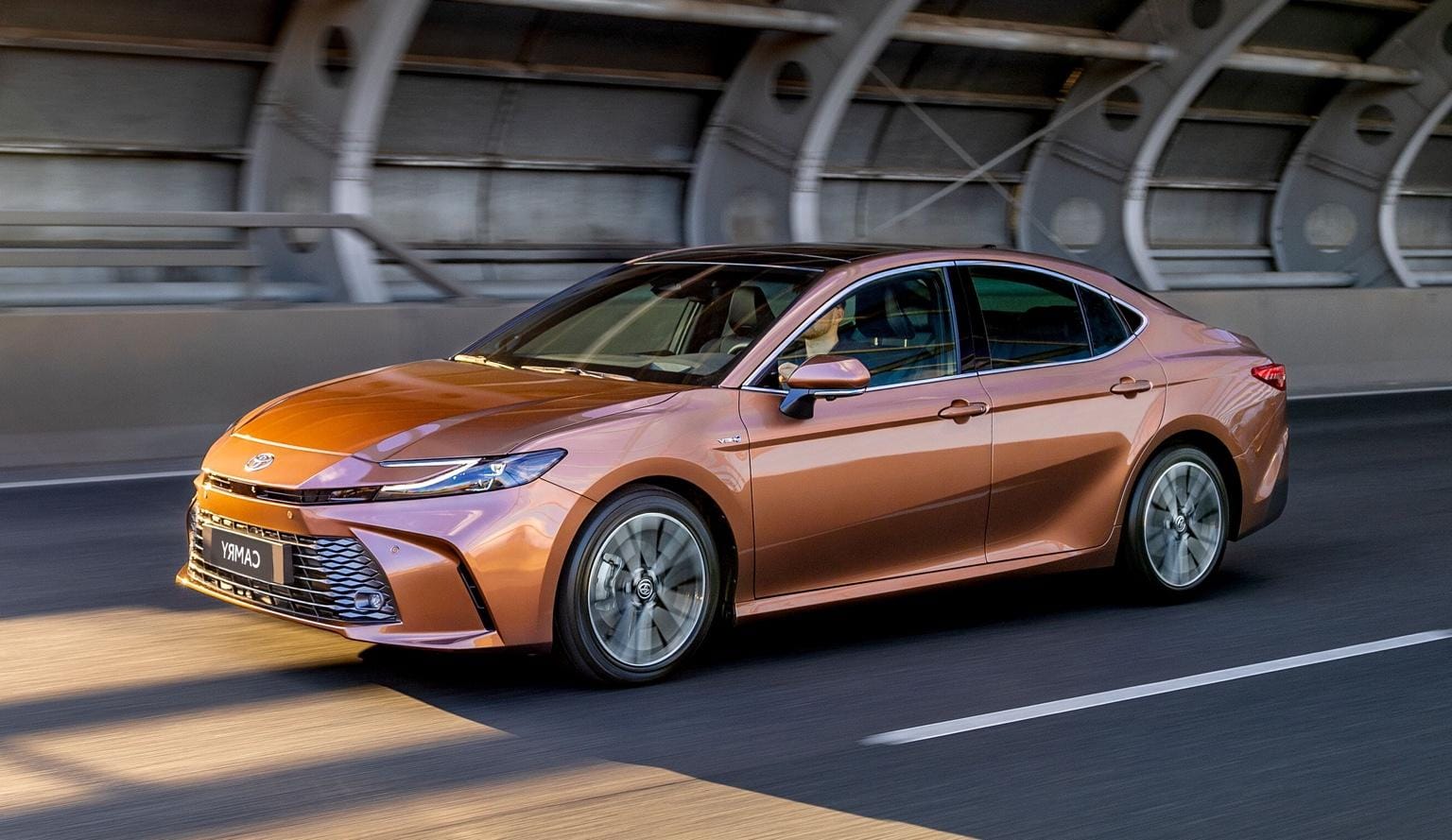
The result is a midsize sedan that offers an unexpectedly calm environment, perfect for commuters, families, or anyone who wants a tranquil space on a budget. The fact that it also delivers excellent fuel economy—well over 50 mpg in many cases—is a substantial bonus.
In the Camry Hybrid, Toyota demonstrates that cabin silence isn’t just a luxury-car privilege. It’s possible to enjoy a hushed, comfortable ride without spending a fortune or sacrificing reliability.
For anyone seeking peace of mind—and peace of sound—this sedan is a smart, satisfying choice.
5. Audi A8
The Audi A8 isn’t just a flagship sedan—it’s a masterclass in automotive silence. While its performance, technology, and design are often the main talking points, the A8’s cabin quietness is where it quietly (pun intended) dominates the segment.
Whether you’re the driver or a passenger lounging in the executive rear seat, the A8 envelops you in near-total isolation from the outside world.
One of the reasons the A8 achieves such impressive results in noise suppression is its commitment to multi-layered acoustic insulation.
From the laminated side and rear windows to heavy sound-deadening materials embedded throughout the doors, floor, and roof, every surface is engineered to muffle and deflect noise. Even the mirrors and windshield wipers are aerodynamically shaped to minimize wind turbulence at speed.
On the move, the A8 consistently scores around 56–58 decibels in cabin noise tests at highway speeds—putting it right alongside or even below the Mercedes S-Class.
Audi’s famed quattro all-wheel-drive system and adaptive air suspension not only enhance handling but also play a big role in reducing road vibrations and noise.
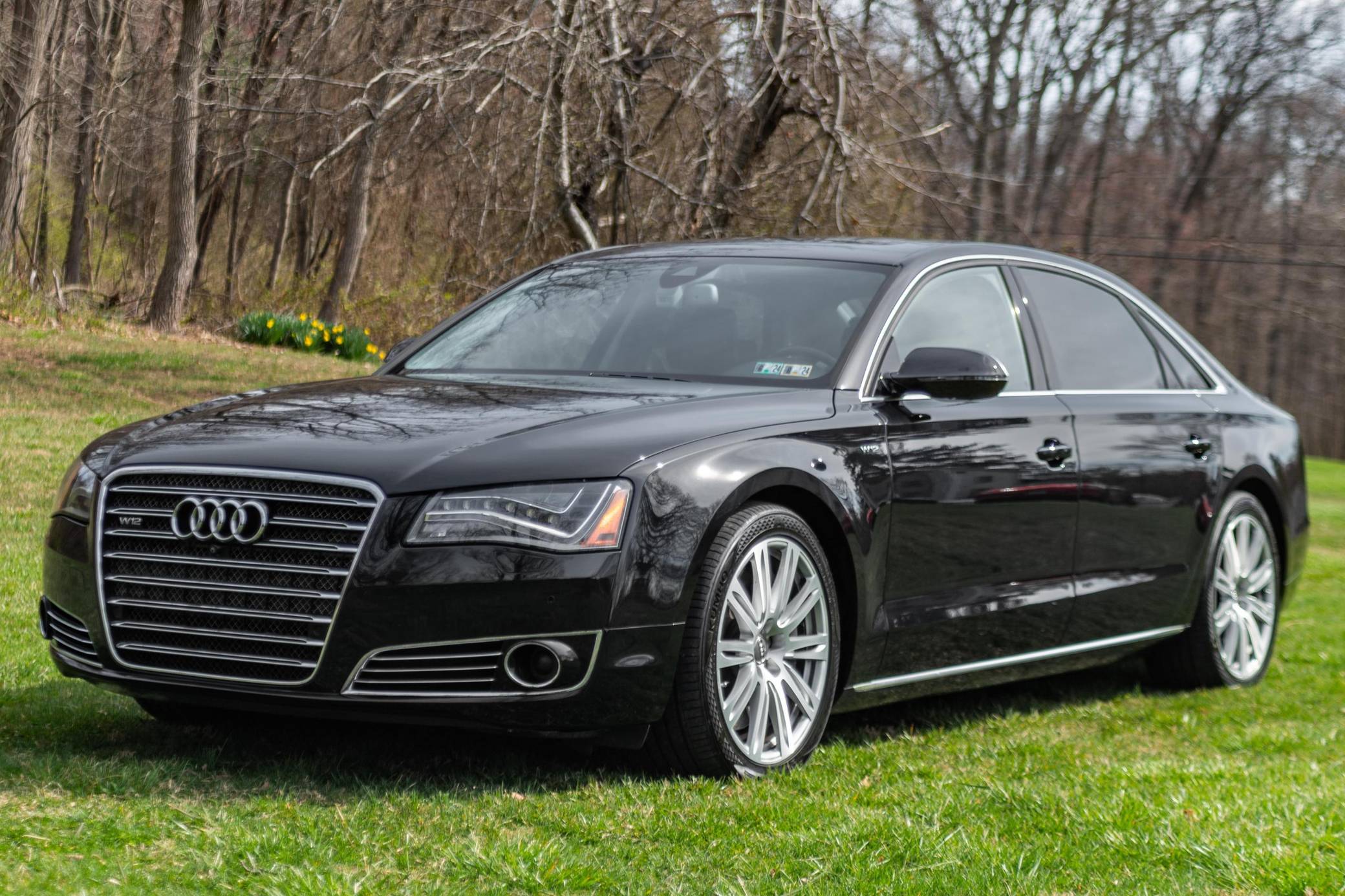
The engine lineup, particularly the mild-hybrid V6 and V8 options, is tuned for smooth power delivery with minimal sound intrusion. Even under hard acceleration, the engine note is restrained, never interrupting the tranquility inside the car.
And for those who want an even quieter experience, Audi offers double-glazed side windows and active noise cancellation through the premium Bang & Olufsen sound system.
Inside, the A8’s minimalistic design doesn’t just look sleek—it’s functional. The soft-touch materials, plush carpeting, and thick headliner all serve acoustic purposes, absorbing stray frequencies and dulling echo.
Rear-seat passengers in the long-wheelbase version are especially treated to a vault-like calmness, even during city traffic or on uneven roads.
The A8 is designed for the discerning luxury buyer who expects perfection in every category, including sound isolation.
It delivers a driving and riding experience that feels more like a private jet than a traditional sedan. If silence is golden, then the Audi A8 is a rolling treasure chest—one that proves peace and performance can coexist flawlessly.
5 Sedans With Loudest Cabins
While silence is golden in luxury sedans, not all vehicles hit the mark. In fact, some sedans—especially those focused on performance, budget pricing, or outdated platforms—end up with surprisingly loud cabins.
Excessive engine noise, road vibrations, wind turbulence, and minimal insulation all contribute to a driving experience that can feel more chaotic than comfortable.
Drivers may tolerate—or even enjoy—some noise in performance models where engine growl adds to the excitement. But in most sedans, loud cabins are an unintentional byproduct of cost-cutting, poor design, or lack of refinement.
Whether it’s a droning engine, tire roar on rough pavement, or constant wind hiss, these audible intrusions can make long commutes stressful and drown out music or conversations. Worse, they often contribute to driver fatigue, making what should be a relaxing ride feel burdensome.
This list of 5 sedans with the loudest cabins isn’t just about shaming underperformers—it’s about transparency for consumers.
Some of these models are otherwise excellent vehicles, offering strong performance, great value, or rugged durability. But if interior quietness is a priority—and for many, it is—these are models to test-drive with your ears open.
We evaluated real-world data from noise tests, owner feedback, and expert reviews to compile this list. In some cases, the problem lies in poor insulation.
In others, it’s an engine that just won’t shut up—or tires that amplify every bump. Whatever the reason, these sedans are noticeably louder than their rivals.
Let’s dive in with our first pick—the Dodge Charger, a sedan that trades quiet for brute strength and muscle-car flair.
1. Dodge Charger
The Dodge Charger may technically be a full-size sedan, but it’s a muscle car at heart—and that’s immediately obvious from the moment you start the engine.
Whether you’re driving the base V6 or the fire-breathing Hellcat variant, the Charger offers unfiltered power. But with that power comes a significant trade-off: a loud, often overwhelming cabin experience.
The Charger’s cabin noise is primarily engine-related. The Hemi V8, while beloved for its throaty rumble, sends noticeable vibrations and sound into the interior—even at idle.
Step on the throttle, and the low-frequency growl becomes deafening, which, for performance enthusiasts, is part of the appeal. But for everyday drivers or long-distance commuters, it can quickly lead to fatigue.
Road and wind noise are also problematic in the Charger. At highway speeds, the cabin registers around 70–72 decibels, which is loud for a modern full-size sedan.
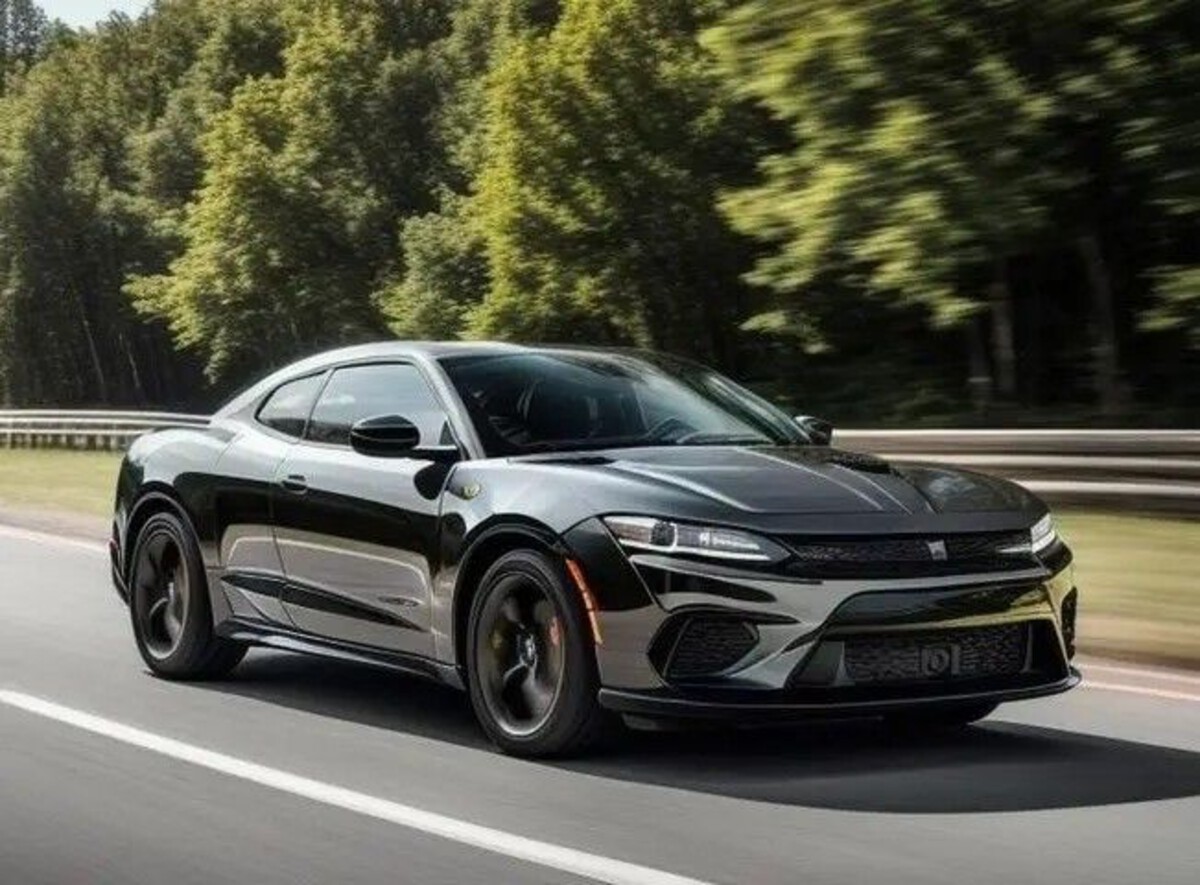
Much of that comes from the car’s aging platform, which lacks the advanced insulation and aerodynamic refinement found in newer competitors.
The Charger was last significantly updated in the mid-2010s, and despite cosmetic refreshes, its underlying chassis remains dated.
The wide, performance-oriented tires further exacerbate the problem, especially on rough pavement. They transmit every bump and vibration directly into the cabin.
The suspension, tuned for firmness and control at speed, sacrifices compliance over imperfections, which in turn amplifies noise. On models with larger wheels or stiffer setups, things get even worse.
Even inside, sound insulation is minimal. The Charger’s interior, while spacious and aggressive in design, lacks soft-touch materials that help dampen sound.
This makes conversation at speed difficult, and even the upgraded sound systems can struggle to overpower the engine and tire roar.
To be fair, the Charger isn’t trying to be a quiet luxury cruiser—it’s a performance sedan built for drama. And many buyers love it for exactly that reason.
But for those prioritizing peace and quiet, this is not the sedan to consider. It’s loud, it’s proud—and it doesn’t apologize for it.
2. Subaru WRX
The Subaru WRX is beloved for its rally heritage, grippy all-wheel drive, and turbocharged performance—but if you’re looking for a quiet ride, this is not your sedan.
From engine drone to road and wind noise, the WRX delivers one of the loudest cabin experiences in the compact performance class. While its noisy nature may appeal to enthusiasts, it can be a deal-breaker for daily drivers seeking comfort and calm.
At the core of the WRX’s sound issues is its 2.4-liter turbocharged flat-four engine, which produces a distinct boxer growl that reverberates through the cabin.
While this characteristic sound is part of the WRX’s identity, it can become fatiguing over time—especially under acceleration, when the engine is anything but subtle.
Cabin readings hover around 70–73 decibels at highway speeds, among the highest in the compact sedan segment.
Adding to the noise, the WRX comes standard with summer performance tires on stiffer suspension. This combo, while excellent for handling, transmits road imperfections directly into the cabin.
Rough or coarse asphalt only makes things worse, amplifying tire roar and suspension thuds. The WRX’s short wheelbase and firm tuning also contribute to harshness that other sporty sedans manage to mask more effectively.
Wind noise is another concern, particularly at highway speeds. The WRX’s exterior design features aggressive bodywork and large mirrors, which can generate noticeable turbulence near the A-pillars.
Unlike many rivals, the WRX doesn’t come with acoustic windshield or side glass, and sound-deadening materials inside the cabin are minimal—another nod to weight savings and performance over luxury.
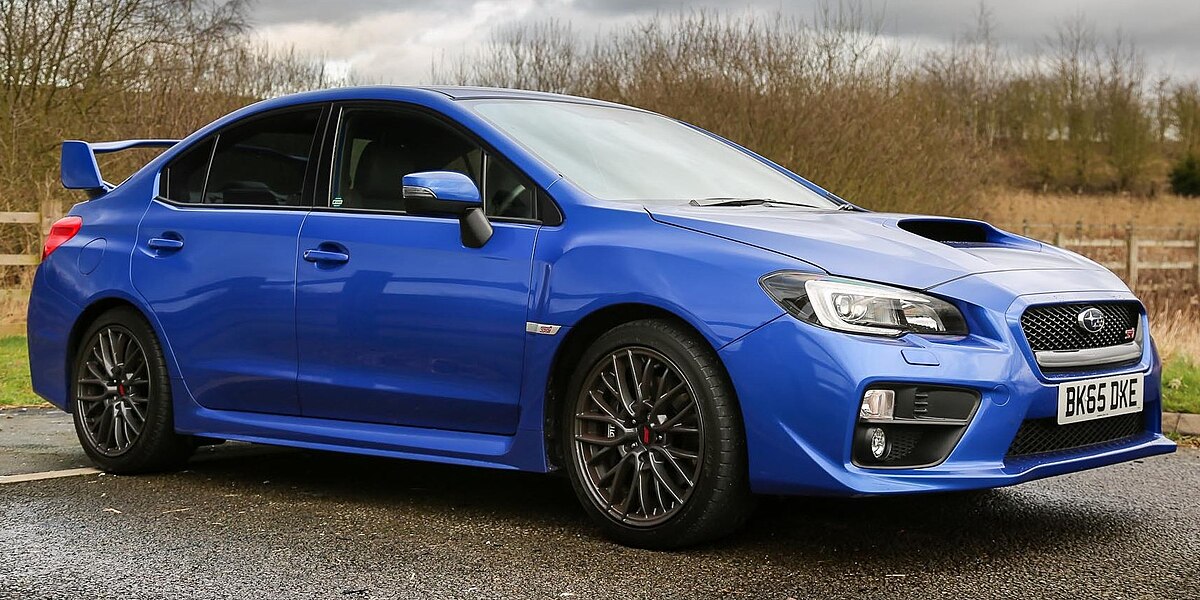
Even the interior layout focuses more on function than plush refinement. Hard plastics dominate the cabin, and while the seats are supportive for spirited driving, they don’t absorb sound the way softer materials do.
To its credit, the WRX delivers serious performance at a relatively affordable price. It’s aimed squarely at driving purists, not comfort-seekers.
But for buyers who spend long hours commuting or prefer a peaceful ride, the WRX’s raw, energetic character can quickly wear thin.
3. Nissan Versa
The Nissan Versa is one of the most affordable sedans on the market, and while it delivers excellent value for first-time buyers or those looking for simple transportation, one major trade-off is immediately noticeable: cabin noise.
Built to a budget, the Versa skips on many of the refinements that more expensive sedans use to create a quiet ride. The result is a car that lets in road, wind, and engine noise in generous doses.
At highway speeds, the Versa consistently records interior sound levels around 70–72 decibels, placing it at the louder end of the compact sedan spectrum. Much of the noise stems from a lack of acoustic insulation in the doors, floor, and firewall.
Unlike mid-range sedans that use sound-deadening foam or acoustic glass, the Versa relies on basic construction and thinner materials that do little to block external noise.
Its 1.6-liter four-cylinder engine, while efficient, can get vocal under load. Paired with a continuously variable transmission (CVT), the engine often revs high when accelerating, resulting in a loud, droning sound that enters the cabin.
Even moderate throttle inputs can produce more noise than expected, particularly when merging or climbing hills.
Road noise is another issue. The Versa rides on narrow, economy-grade tires that are not optimized for sound suppression.
On coarse or uneven pavement, these tires transmit a constant hum into the cabin, while the basic suspension setup struggles to absorb impacts quietly. The result is a driving experience that feels more connected to the road—but not in a good way.
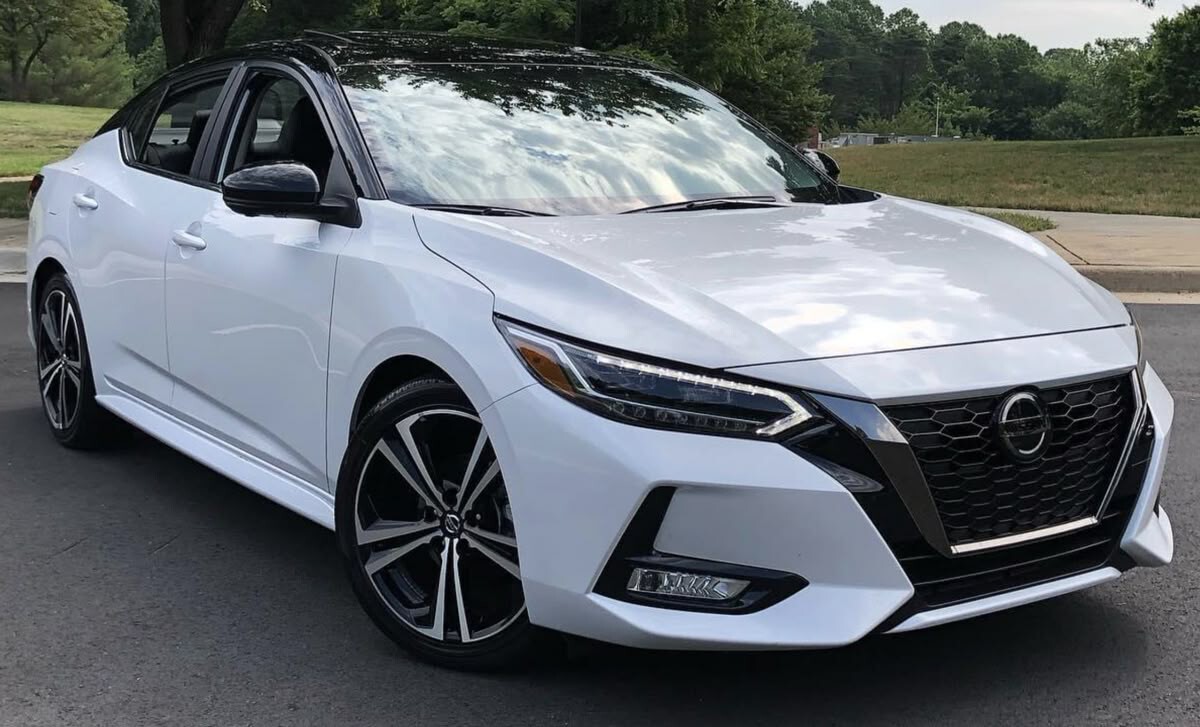
Wind noise becomes more apparent as speeds increase. Due to its lightweight build and basic aerodynamics, you’ll hear whistling or buffeting from the mirrors and windows—especially on breezy days or during highway cruising.
To be fair, the Versa isn’t pretending to be a luxury car. It’s a simple, practical sedan built with economy in mind. But if cabin quietness is high on your priority list, this vehicle falls noticeably short.
The low price tag is appealing, but in terms of acoustic comfort, the Versa proves that sometimes, you really do get what you pay for.
4. Chevrolet Malibu
The Chevrolet Malibu was once a strong player in the midsize sedan segment, offering good value, sharp styling, and a smooth ride.
But in today’s competitive market—where refinement is expected even from non-luxury sedans—the Malibu has fallen behind, especially in terms of cabin noise control. Its aging platform and lack of meaningful updates have left it with one of the loudest cabins in its class.
In real-world tests, the Malibu’s cabin registers 71–73 decibels at highway speeds. That puts it near the top of the noise scale for midsize sedans, on par with vehicles that cost thousands less. This elevated sound level stems from several issues.
First, insulation materials are minimal, especially in the firewall and underbody. The floorpan lacks the dense soundproofing found in more modern rivals, and the doors use basic seals that allow wind to creep in at speed.
The 1.5-liter turbocharged engine used in most trims isn’t inherently noisy at idle, but it becomes coarse and buzzy under acceleration.
Mated to a continuously variable transmission (CVT), the engine frequently revs high to maintain speed, resulting in a persistent drone that quickly becomes irritating on long drives.
Road noise is another persistent problem. The Malibu’s suspension, while tuned for comfort, doesn’t fully absorb rough surfaces.
Combine that with low-rolling-resistance tires and an aging chassis, and you get considerable feedback from the road. On patched or grooved pavement, the tire hum can drown out both conversation and music.
Wind noise is similarly intrusive. Unlike competitors that use acoustic glass and advanced aerodynamics, the Malibu’s design hasn’t been updated to today’s sound-suppression standards.
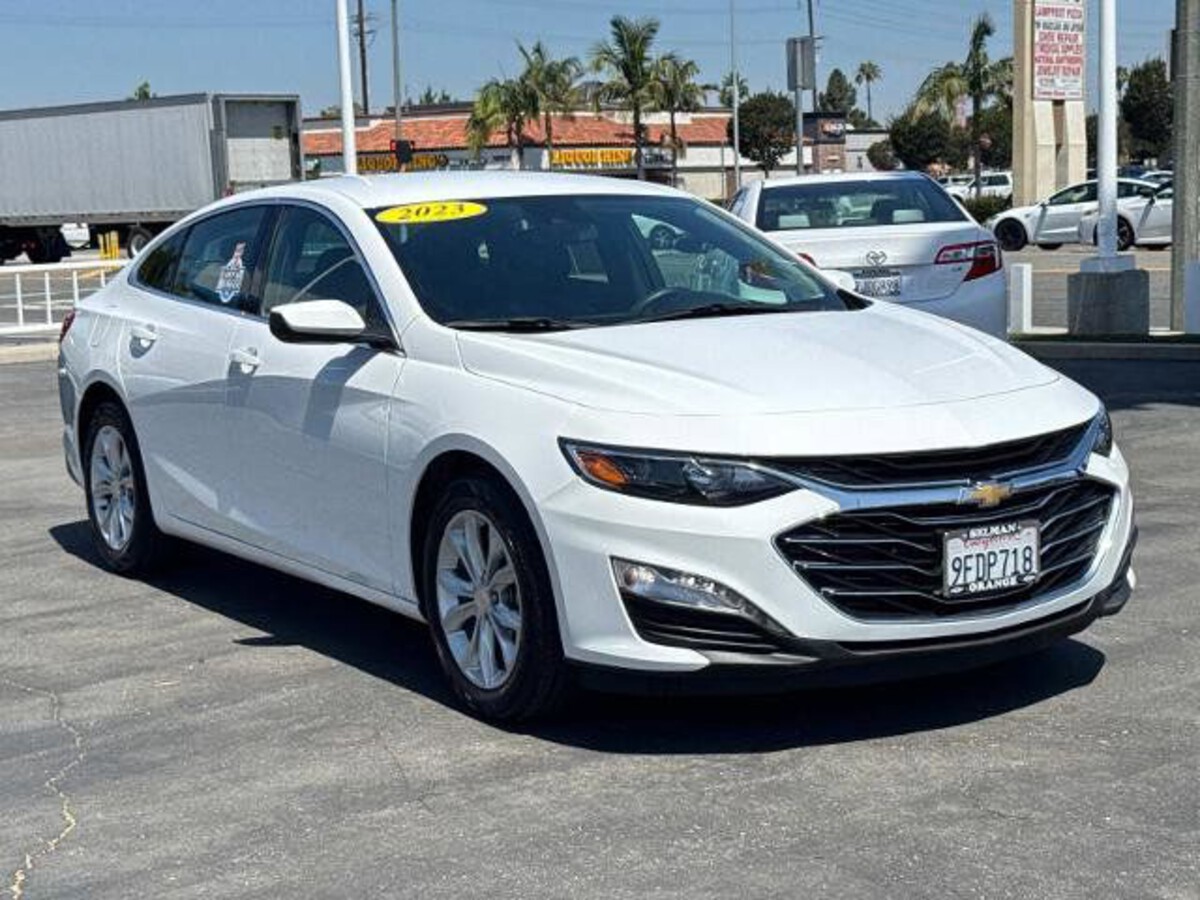
Around the A-pillars and mirrors, noticeable wind hiss can develop at just 60 mph and gets worse as speeds climb.
Inside, the Malibu’s materials don’t help much either. While functional and fairly well put together, the use of hard plastics and basic upholstery means there’s little to absorb ambient sound. Even with the upgraded infotainment system, the overall acoustic environment feels unrefined.
The Malibu isn’t a bad car—it’s just behind the times. And in a market where even budget sedans are becoming quieter and more polished, its noisy cabin is a stark reminder that silence isn’t something you can take for granted.
5. Mitsubishi Mirage G4
If there’s one sedan that openly prioritizes cost-cutting over comfort, it’s the Mitsubishi Mirage G4. Marketed as one of the most affordable new sedans in America, the Mirage G4 delivers on its promise of a low price, great fuel economy, and simple transportation.
However, one area where it falls drastically short is cabin quietness. This car is, quite simply, one of the loudest sedans on the market today.
With decibel readings consistently in the 72–75 dB range at highway speeds, the Mirage G4 ranks among the worst in its class for noise isolation.
Nearly every type of sound—engine noise, tire roar, wind turbulence—enters the cabin with little resistance. The result is a ride that feels raw and exposed, especially during high-speed cruising or on poor-quality roads.
The culprit is a combination of ultra-thin sheet metal, lack of sound insulation, and minimal acoustic engineering.
The 1.2-liter three-cylinder engine, while efficient, is underpowered and works hard to maintain highway speeds, often revving high and producing a distinct mechanical rasp that reverberates through the cabin.
The CVT transmission compounds this issue, creating a continuous high-frequency whine that’s difficult to ignore.
Tire and road noise are equally problematic. The Mirage G4 rides on small, narrow tires designed for efficiency, not comfort or silence. On rough pavement, road feedback becomes a constant companion.
The suspension setup, which is simple and firm, does little to absorb or mute these sounds. The car also lacks underbody insulation or wheel-well liners, making it more vulnerable to external noises.
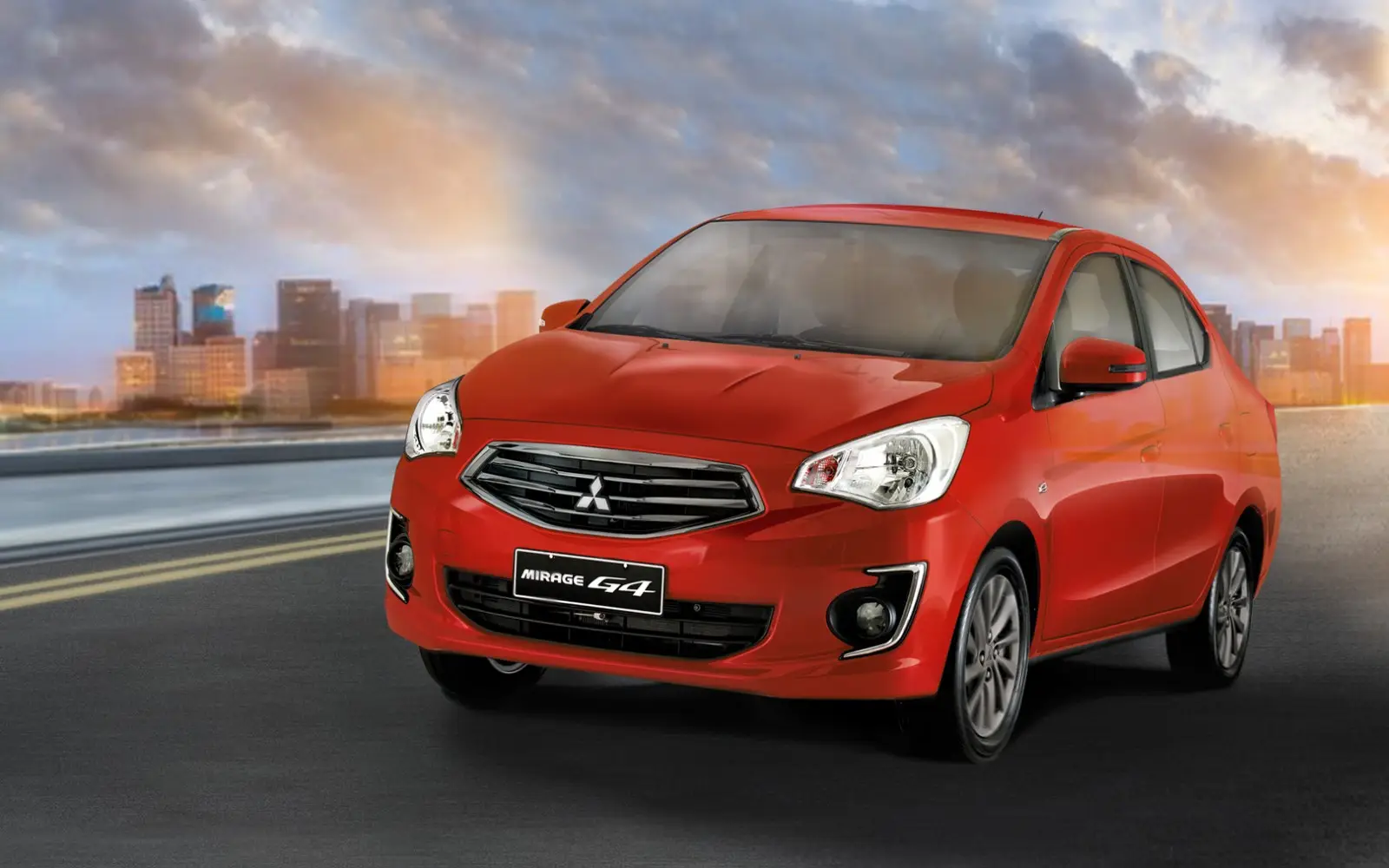
Wind noise isn’t filtered either. Due to basic aerodynamics and limited door sealing, you’ll likely hear persistent wind whoosh around the A-pillars as soon as you reach 55 mph. There’s no acoustic glass, no active noise cancellation, and very little in the way of vibration damping.
The interior itself—dominated by hard plastics and minimal fabric—does little to soften the experience. Even casual conversation at highway speeds requires raised voices, and the standard audio system often struggles to compete with the ambient roar.
The Mirage G4 delivers on affordability, but the compromise is a loud, unrefined ride that may wear thin for daily commuters. For those who value peace and quiet, this is a sedan best avoided.
Whether you’re gliding along the highway in a whisper-quiet Mercedes-Benz S-Class or battling engine drone in a no-frills Mitsubishi Mirage G4, one truth becomes clear: cabin noise dramatically shapes the driving experience.
In this comparison of the five quietest and five loudest sedans, we’ve seen how far vehicle refinement can vary—even among cars in the same category.
On one end of the spectrum, sedans like the Lexus ES, Audi A8, and Genesis G80 show what’s possible when soundproofing is treated as a form of luxury.
These vehicles use laminated glass, active noise cancellation, advanced suspension systems, and strategic insulation to create cabins that serve as sanctuaries.
Even mainstream offerings like the Toyota Camry Hybrid prove that peace and quiet aren’t exclusive to the luxury class—they’re attainable even on a budget if engineered right.
On the other end, models like the Dodge Charger, Subaru WRX, and Chevrolet Malibu illustrate how performance focus, aging platforms, or budget constraints can lead to louder cabins.
Vehicles such as the Nissan Versa and Mitsubishi Mirage G4, built to meet aggressive pricing targets, understandably cut corners on acoustic refinement—but that means more road noise, wind turbulence, and engine clatter reaching your ears.
So why does cabin noise matter? Beyond mere comfort, a quieter interior leads to reduced fatigue, clearer communication, and a more refined overall driving experience.
It also allows premium features like high-end sound systems or hands-free calling to truly shine. Meanwhile, constant noise can turn commutes into chores and diminish a car’s perceived quality over time.
In short, cabin silence isn’t just about luxury—it’s about livability. Whether you’re shopping for a $20,000 commuter or a $100,000 executive sedan, it’s worth taking note of how much noise seeps in once you’re on the move.
When test-driving your next vehicle, don’t just listen to the engine—listen to everything else.
The quietest sedans may not shout for your attention, but they’ll reward you every mile with a sense of calm that only the most refined cars can offer. And the loudest? They might just remind you why silence is so valuable in the first place.
Also Read: 5 Used Trucks With Low Ownership Cost and 5 That Drain Savings

